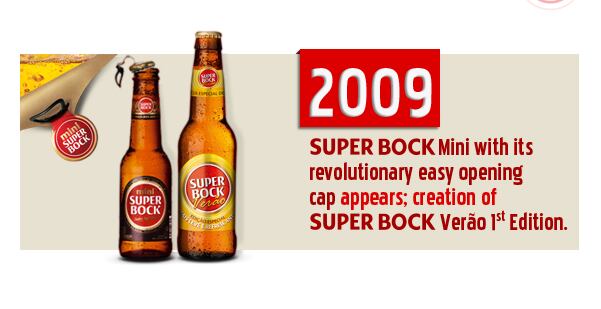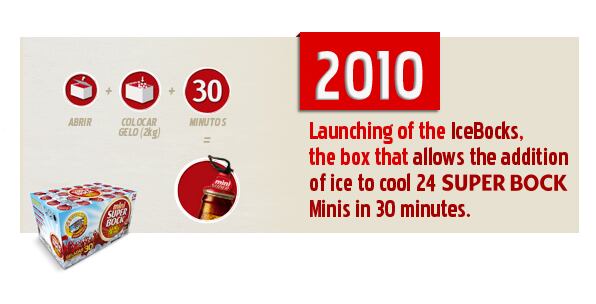André Jacques, director of innovation and marketing at UNICER, was speaking spoke at the Canadean Beverage Packaging 2014 conference in Brussels earlier this week.
Porto-based Unicer is part of the Carlsberg Group but is 56% owned by Portugal’s VIACER Group; exports totaled 31% of products sold in 2013, this figure has hit 40% this year and will soon approach 50%.
The company recentlyinvested over €100m in a new brewery with a capacity of 4.5m hl and new warehousing capacity to support growth and foreign demand for brands including Super Bock, although Unicer also has positions in still and sparkling waters, soft drinks and wine.
Jacques said Sagres revolutionized the Portuguese beer market in the early 2000s by introducing the so-called ‘mini’ or 200ml bottle, which led to what he told delegates was a “big fight in a mini business”.

‘Simple peasants from the Portuguese countryside created a huge trend’
“Our competitor’s bottle was really taking over the market,” he said. “It was funny – being a marketeer. They always say you need to target an urban population, younger people, trendsetters, to get bigger growth in the end. This worked completely the other way round – this came from rural areas, mid- to older-aged consumers.
“Simple peasants from the countryside of Portugal created a huge trend that today is 20%+ of the beer market,” Jacques said. “We had to respond, and not only bring in the pack type – but some propriety.”
Unicer’s answer to Sagres (owned by SCC, part of the Heineken Group) was to launch Super Bock in Mini bottles with a pull-off cap in 2009, which Jacques said was ‘easy’, ‘convenient’, ‘fresh’ and ‘fun’ for consumers.
Although the older, rural population constituted the bulk of mini bottle consumption at its outset, Jacques says Unicer’s innovation helped shift the ‘center of gravity’ for the pack type towards a younger generation of party goers and socialites, by targeting summer occasions and live music.
“But our competition was still anchored there, in terms of communicating traditional values,” he said.
“What we had in one year was a big gap in terms of market share that we managed to narrow through promotions. The year later we were finally able to narrow the gap but at the same price point – a tremendous achievement given that we came to market with this proposition so many years after our competitor,” he said.

Turning the (beer) tables of draught declines in Portugal
Turning to other recent innovation successes for Unicer in Portugal, Jacques cited 2010 launch the ‘Ice Box’ (a patented beer box that you can open then fill with ice to keep beer cool during the summer), and the ‘Beer Table’.
Explaining that Unicer hold a circa two thirds volume share of a declining draft business, Jacques said the company built a ‘Beer Table’ this year that allows consumers in a food court (a growing Portuguese phenomenon) to pour their own pints.
After paying for a QR code at cashier’s desk, drinkers use this to activate a beer tap. Jacques said the success of this innovation encouraged consumers to try Unicer’s lesser-known specialty or 'craft' beers under the Super Bock brand, and in its first 4.5 months of service the table sold 250 hectoliters of beer.
“There’s no single outlet in Portugal selling this amount right now, and it wasn’t even built for these volumes!” Jacques said.
